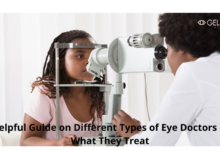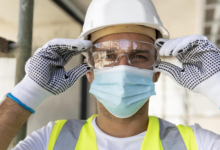Acne is a very common skin condition that affects an estimated 50 million people in the United States each year. It is most common among adolescents and young adults, with 85% of people between the ages of 12 and 24 experiencing acne.
There are different types of acne. These include non-inflammatory acne such as whiteheads and blackheads, and inflammatory acne such as nodules, cysts, papules, pustules. Nodules and cysts are the most severe type of acne.
In this blog post, we will look at the causes and symptoms of acne, as well as highlight how to treat severe acne.
What Are the Causes of Acne?
Acne occurs when the skin’s pores become blocked with bacteria, dead skin, and/or oil. The skin’s sebaceous glands are small glands that are found near the surface of the skin and are attached to hair follicles, from which individual hairs grow out.
These glands produce an oily substance known as sebum in order to lubricate both the skin and the hair. Acne can occur when these glands produce an excess amount of sebum, which mixes with dead skin cells to plug the hair follicle. This can result in whiteheads or blackheads.
Nodules, cysts, papules, and pustules are caused when bacteria that live on the skin contaminates and infest the plugged follicles.
Other possible causes include testosterone levels, genetics, smoking, certain cosmetic products, and certain medications.
What Are the Symptoms of Acne?
Here we will highlight the symptoms of the 4 types of acne we have mentioned above:
- Nodules: solid and often painful lumps under the skin’s surface
- Cysts: Larger lumps found under the skin that contain pus and are often painful
- Papules: Small, red, and raised bumps on the skin
- Pustules: Small and red pimples that have pus at their tips
In addition to the physical symptoms, acne can affect self-esteem and body confidence.
How to Treat Severe Acne
Now that we understand more about acne itself, let’s look at how to treat severe acne. While more mild and moderate cases of acne may be treated with at-home care, medication is available to treat more severe cases.
Acne treatment medication typically contains ingredients that help to reduce oil on the skin and kill bacteria. These ingredients include benzoyl peroxide, sulfur, resorcinol, salicylic acid. Topical antibiotics to reduce inflammation and kill bacteria may also be prescribed.
Click here to learn more about RX prices and acne medications.
In addition to medication, there are a number of procedures that can help to treat severe cases of acne and prevent scarring. These include:
- Photodynamic therapy
- Dermabrasion
- Cortisone injections
- Chemical peel
The bottom line is that with the right treatment, even severe cases of acne are treatable.
How to Get Rid of Acne
There are different treatment options for acne, depending on the severity of the case. For more severe cases, medication is the best treatment option though there are also a number of procedures that can be effective.
Like this blog post on how to treat severe acne? Be sure to check out our other informative articles on a wide range of interesting topics.
Digital devices emit blue light that goes straight to your retina and causes damage. Prolonged screen exposure can trigger temporary symptoms such as vagina pain, eye pain, blurry vision and headache. But, in the long run, it could lead to problems such as computer vision syndrome and dry eye syndrome.

